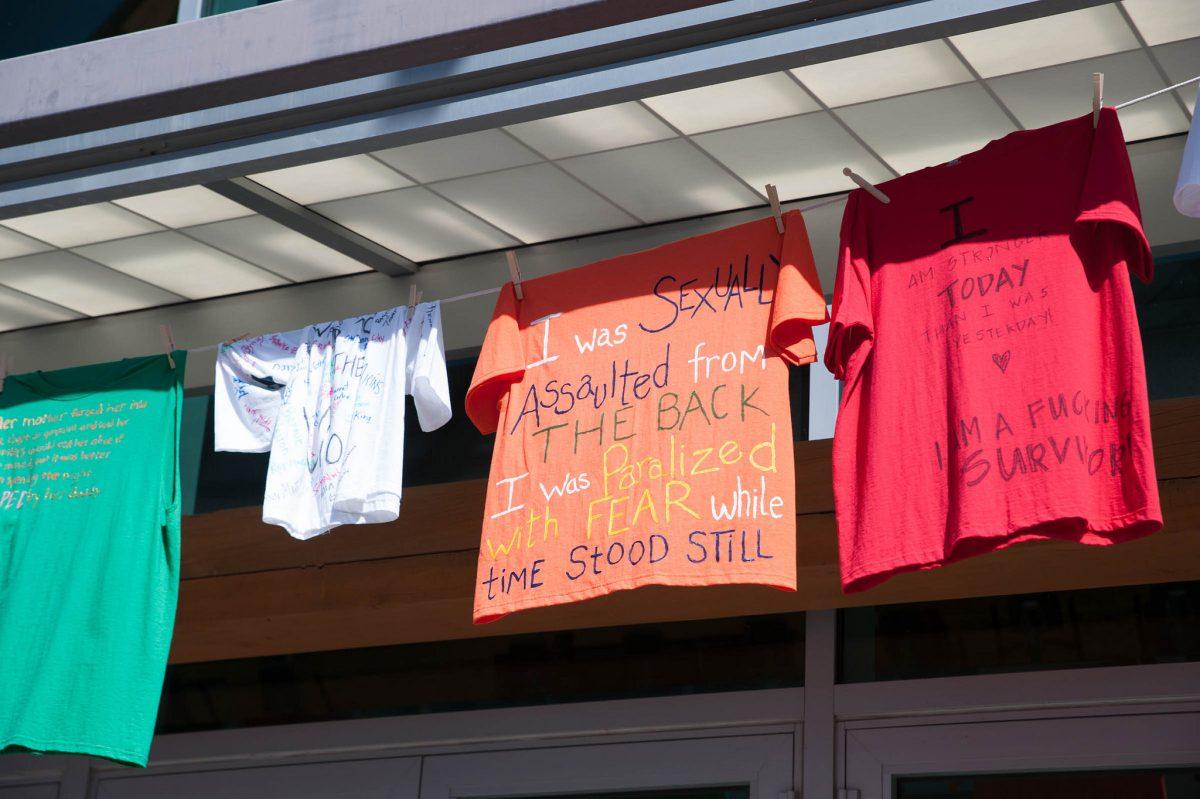Sexual assault is a difficult subject to talk about. Not only for those who are survivors, but for the general public. Because sexual assault is so prevalent in colleges, the topic demands to be discussed.
A 2007 campus sexual assault study by the U.S. Department of Justice found that around 1 in 5 women are targets of attempted or completed sexual assault while they’re in college.
Also, The Rape, Abuse and Incest National Network reports college-aged women are four times more likely than any other age group to face sexual assault.
April is Sexual Assault Awareness Month and Sonoma State University is holding numerous events on campus to try and get the word out about sexual assault and hopefully create change.
As a visual tool, Counseling and Psychological Services hung colorful T-shirts in both the Student Center and Salazar Plaza. These T-shirts, known as the Clothesline Project, were made by student survivors of sexual assault over the past 10 years. For women that have been affected by sexual assault, the T-shirts serve as a way to express their emotions and deal with the trauma. For those who pass by the shirts, they serve as a reminder to always promote non-violence of any kind against women.
The Clothesline Project is intended to serve as a healing form of expression for those who were directly affected or know of someone who has been sexually assaulted. The display also serves as a way to educate college students who pass by it about these crimes against women.
“It was a truly humbling experience seeing all the pain and suffering on one piece of cloth,” said freshman Madison Muro when given the opportunity to take a closer look at the shirts. “I am so glad Sonoma State and the CAPS program is spending the time and effort to enlighten students on sexual assault.”
Laura Williams, clinical director and crisis advocate at Counseling and Psychological Services, operates a sexual assault survivor group on campus.
“Most of them wouldn’t want to come make shirts,” said Williams in a prepared statement from the SSU NewsCenter. “There’s a lot of shame and guilt associated with sexual assault.” The guilt and shame comes from the victims; not the assailants.”
This is a troubling thought to think women blame themselves for what happened to them. Williams as well as the entire Counseling and Psychological Services department want to make it clear through the events occurring this month, that sexual assault is never the victim’s fault.
“The immediate response by victims is often, ‘Oh, I shouldn’t have had so much to drink,’ or they shouldn’t have been wearing certain clothes or shouldn’t have been flirting with him,” said Williams in the statement. “It puts the blame on the victim rather than the perpetrator.”
California law states that consent is mutual, defining it as an affirmative, unambiguous and conscious decision. It applies to all colleges that accept financial aid from the state. The California State University and University of California systems adopted similar standards earlier in the year and supported the legislation.
“We’ve been saying this for a long time,” said Williams in the statement. “Yes Means Yes is an important step in helping victims of sexual assault come forward.”
This month, the Counseling and Psychological Services department will be putting on events to educate and spread awareness about the important issue of sexual assault.
Beginning with the Clothesline Project earlier this month, there will be a handful of speakers sharing their experience and expertise about relationships, consent and human sexuality.



































